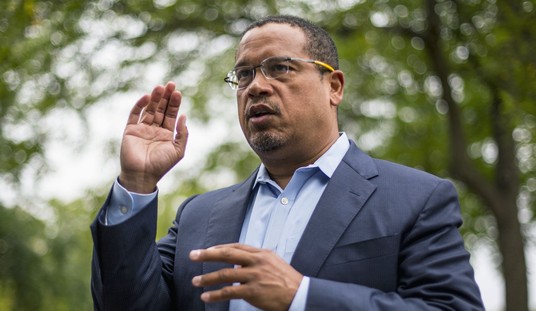Barack Obama’s deficit commission failed to win the required supermajority required by its mandate to press Congress to adopt its recommendations. Regardless, the report has already shifted debate even further on Capitol Hill on spending cuts and deficit reduction, and will probably find its way in some form into legislation from the GOP-controlled House next year:
President Barack Obama’s bipartisan deficit commission failed to reach consensus on a far-reaching, tough-medicine deficit-cutting plan, falling three votes short of a 14-vote goal that might have pressured congressional leaders to vote on the sweeping bipartisan proposal as a package to bring down the massive federal debt.
With all three House Republicans voting no and Democratic lawmakers split, the 11-7 vote on the plan – which would cut $3.9 trillion from the debt over nine years through a combination of tax increases, entitlement cuts and a proposal to raise the retirement age past 65 – meant it is unlikely to get a vote on the floor of either the House or Senate.
The failure to reach the 14-vote approval Obama set as the standard also dashed hopes for a grand bargain that would break a partisan stalemate over fiscal policy that has stymied serious action on the deficit, which has skyrocketed from $160 billion in 2007 to $1.3 trillion this year.
Commission co-chairmen Erskine Bowles, President Bill Clinton’s former chief of staff, and retired Sen. Alan Simpson (R-Wyo.) labored for 10 months but failed to cajole reluctant members to bend their partisan principles to reach a deal. Still, both men insisted Friday that the commission’s majority had permanently put the deficit and the government’s ensuing debt at the top of the national agenda.
I think that’s exactly correct. The bipartisan composition of the panel and its dire warnings about the unsustainability of the current national direction has almost erased the tendency of the media over the last several years to ignore the spiraling debt. It has also forced both parties to start considering policies to reverse course, although both parties have different paths in doing so. The lack of supermajority agreement on the Bowles-Simpson plan doesn’t mean a defeat for debt reduction at all.
However, it does put this issue back where it belongs: in Congress. The legislature exists to create and enforce budgets for the federal government, and the responsibility for deficit spending lies squarely at their end of Pennsylvania Avenue. The use of an executive-branch committee to dictate budget choices was always problematic, and its existence could have allowed elected officials to escape responsibility for bad policy by blaming their choices on the commission — a dynamic seen on several occasions over the years.
Just because the commission couldn’t generate unanimity on their proposal doesn’t mean that every idea in the plan is a dead letter. Nor does it mean that the issue has gone away. Congress needs to grasp its duties on budgets and funding seriously and act decisively to drive down the debt and end deficit spending. This is just one more reminder that this should be the domestic national priority for the next session of Congress, and that voters are finally engaged and demanding change and solutions.
Update: Veronique de Rugy offers another reason not to mourn the report’s demise today:
But there are other reasons to be against the report, despite all the good things in it (e.g., the broadening of the base with cuts in marginal tax rates, the reduction of the corporate-income tax rate, setting the stage for raising the retirement age).
First, real spending cuts are nowhere to be found; in their place we have the old “baseline” budget gimmick. Increasing spending more slowly than it was scheduled to increase is not a spending cut. That’s like me saying that instead of buying three new outfits, as I had planned, I will only buy two outfits, when in fact I should have been selling much of the stuff in my closet. Also, keeping spending constant is not the same as cutting spending.
By its own admission, the commission’s report increases spending by $1,600,000,000,000 (that’s $1.6 trillion) between today and 2020 (check out Figure 16 on page 64 here). Let me repeat that: In 2020, the federal government will be spending $5.1 trillion. It spends $3.4 trillion today. It will increase spending faster than inflation.
There is a fairly simple way to stop deficits: curtail spending. Bowles-Simpson starts with the assumption that current spending levels should be maintained, rather than look for serious ways to significantly reduce spending now. That is a fatal assumption, and one reason why some have suggested that the commission only kicked the debt can down the road for another decade or so rather than proposing an actual solution.








Join the conversation as a VIP Member